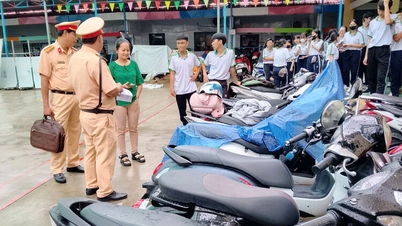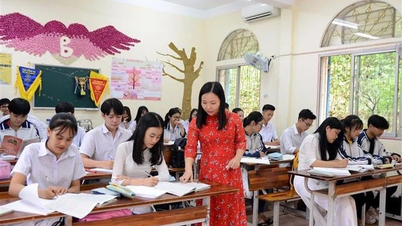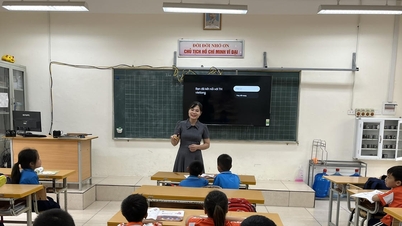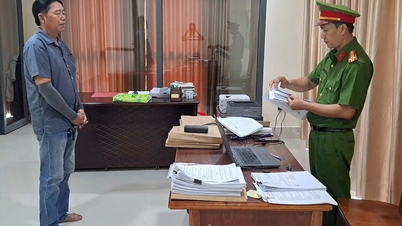On November 10, at the program "Ensuring cyber security for teenagers", Mr. Ngo Minh Hieu (Hieu PC), cyber security expert, Director of the Anti-Fraud Organization shared his mistakes when he was young.
“My bad habit in high school was not listening to and not sharing with my parents. I could say I was a recluse, I would close my door when I got home, spend all day sitting in front of the computer and online or on the phone,” Mr. Hieu said, adding that isolating oneself is an environment that makes it easy for young people to “fall into” traps.

Mr. Hieu said that currently, with AI, deepfake and automated tools, cyber attacks are becoming more and more unpredictable. Subjects can impersonate other people's faces, even turn into police officers,... with just a photo in a few seconds to call online and approach students. Hackers can crop images of young people online, create sensitive videos to blackmail,...
“Just last week, a 9th grade female student was tricked by a stranger into sending her face via Facebook messages. The bad guy used deepfake to insert her face into an 18+ video and then blackmailed her family. It’s very dangerous,” Mr. Hieu said.
Therefore, Mr. Hieu advises young people not to make friends with strangers online, not to share personal information on social networks, etc. "The list of friends and relatives of you on social networks also needs to be hidden. Because through that, bad guys can narrow down, know the relationships, relatives and find out and exploit your information to scam", Mr. Hieu said.

Major Nguyen Hong Tien, Department of Cyber Security and High-Tech Crime Prevention (Hanoi City Police) said that in the first 10 months of 2025, there were 22,200 reports to the functional agencies of the Ministry of Public Security about crimes using high technology to commit fraud.
“The targets of high-tech fraudsters are students (aged 18-22); especially women, and up to 90% of the cases are 'online kidnappings',” said Mr. Tien.
Major Nguyen Hong Tien said that online kidnappings often start from isolation. “First, the subjects will try to separate students from contact with their parents, teachers, and friends. Then, criminals will attack the psychology of students based on their feelings of loneliness, hurt, or the need to be understood. When they lose connection with their family and school, students can easily fall into the trap of bad subjects,” Mr. Tien warned.
In addition, he also noted that many students fell into the trap of "easy work, high salary" scams; recruitment scams; and online collaborators.
Source: https://vietnamnet.vn/hieu-pc-noi-ve-goc-khuat-khien-hoc-sinh-de-dinh-bay-lua-dao-qua-mang-2461340.html



![[Photo] Highways passing through Dong Nai](https://vphoto.vietnam.vn/thumb/1200x675/vietnam/resource/IMAGE/2025/11/12/1762940149627_ndo_br_1-resize-5756-jpg.webp)








































































































![Dong Nai OCOP transition: [Article 3] Linking tourism with OCOP product consumption](https://vphoto.vietnam.vn/thumb/402x226/vietnam/resource/IMAGE/2025/11/10/1762739199309_1324-2740-7_n-162543_981.jpeg)








Comment (0)